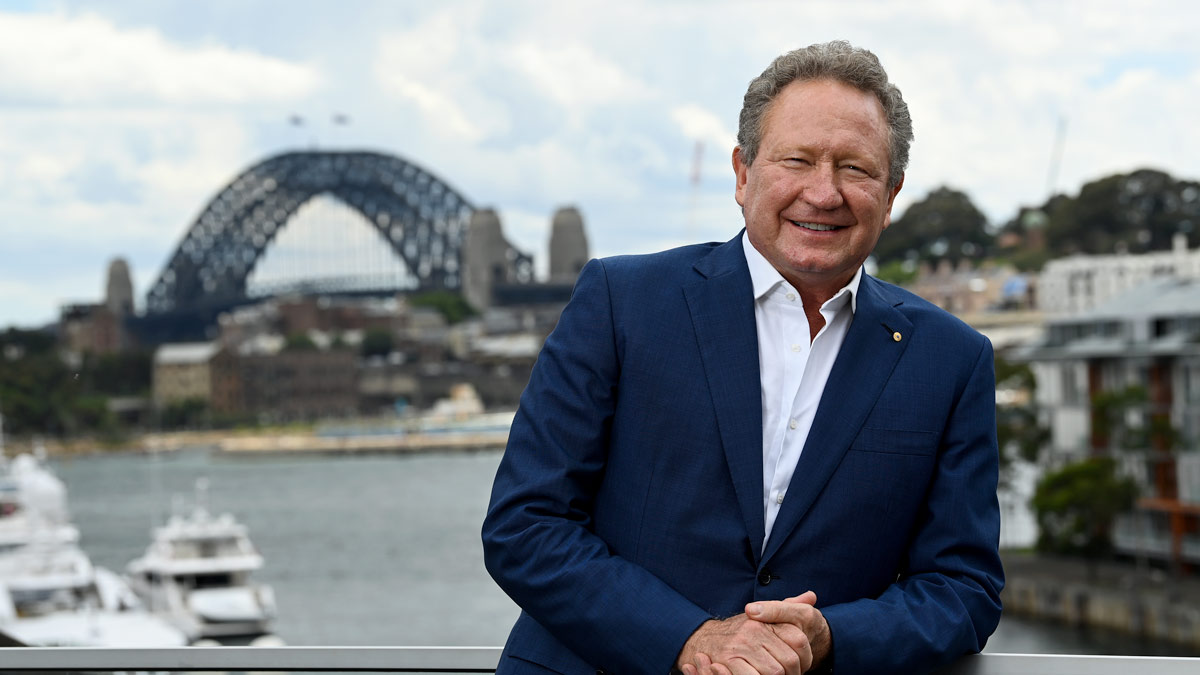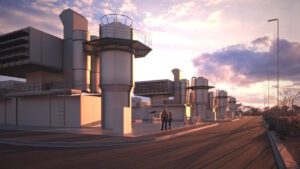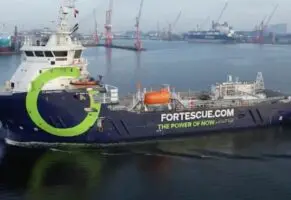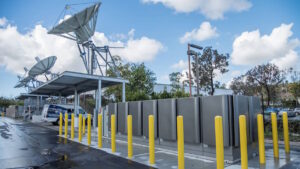Andrew Forrest’s Fortescue Future Industries has acquired a stake in an Australian invented technology that promises the ability to produce renewable hydrogen using just sunlight.
Sparc Technologies has been working to commercialise a new ‘photocatalyst’ technology developed by researchers at the University of Adelaide and Flinders University, which can split water using direct sunlight using the catalyst material, avoiding the need to generate the electricity required by conventional electrolysis.
The process of ‘photocatalytic’ water splitting uses an innovative material to split water into hydrogen and oxygen with using sunlight, potentially reducing the cost and the amount of land needed for renewable hydrogen production.
By developing the process of “thermo-photocatalysis”, the venture has the potential to eliminate the need for large-scale solar or wind farm developments in the production of renewable hydrogen, reducing costs and making production more flexible.
“As such, capital and operating expenditure is anticipated to be significantly lower than electrolysis and other forms of hydrogen production currently in use,” Sparc Technologies said in a statement to the ASX.
“Furthermore, this technology can potentially be adopted remotely and for onsite use, thereby reducing the reliance on long distance hydrogen transportation and/or electricity transmission.”
The deal is the latest of a string of investments and proposed ventures that form part of Forrest’s ambitious plans to be a world leader in green energy technologies, with a particular focus on renewable hydrogen and ammonia production.
On Wednesday, Fortescue Future Industries announced that it had purchased a stake in Sparc Hydrogen, a spin off from spark, and will work with the University of Adelaide to accelerate the development and commercialisation of the new technology.
Under the joint venture, FFI will acquire a 20 per cent stake in the joint venture in return for a $1.8 million investment. FFI will also have an additional option to increase the stake to 36 per cent at a later stage, with an additional $1.475 million investment.
The ASX listed Sparc Technologies will retain a 36 per cent ownership stake in the hydrogen spin-off. Shares in Sparc Technologies fell by more than 13 per cent following the announcement that it would split off the hydrogen technology into the separate joint venture.

FFI CEO Julie Shuttleworth said Fortescue’s investment in the technology was motivated by its commitment to fund potential solutions to climate change.
“There is irrefutable scientific evidence that the planet is warming. Green hydrogen is a practical, implementable solution to decarbonise hard to abate sectors, including heavy industry,” Shuttleworth said.
“The research being undertaken by Sparc Hydrogen is important for FFI’s growing technology portfolio as we develop technologies to lower emissions globally. We are excited to enter into this agreement and to support this critical research into green hydrogen.”
FFI has recently entered into several partnerships to boost both the production and use of renewable hydrogen, including plans to supply hydrogen to a Queensland ammonia factory and to convert the site of a former New Zealand oil refinery to a hydrogen production facility.
FFI announced last month that it had designed and built its own operational electrolyser for hydrogen production, and the group has also acquired the technology off-shoot of the Williams F1 team, Williams Advanced Engineering, which has developed high performance battery technologies, in a deal worth $130 million.
Executive chairman of Sparc, Stephen Hunt, said the group was “extremely excited” to be partnering with FFI, given the scale of investments the company was making in the hydrogen sector.
“Sparc is extremely excited to be working with a company of the calibre of FFI, which has demonstrated its credentials as being a world-leading company in green hydrogen. FFI is very well placed to assist the development and commercialisation of Sparc Hydrogen’s green hydrogen photocatalytic technology,” Hunt said.
The University of Adelaide will also hold a 28 per cent stake in the joint venture in return for the licencing of the intellectual property for the photocatalytic material. The partnership will also see funding provided to the University of Adelaide to further research and develop the technology.
The university filed a provisional patent application for the hydrogen technology last year.
The university’s executive director for innovation and commercial, Dr Stephen Rodda, said he expects the involvement of FFI in the joint venture would ensure the successful commercialisation of the university’s research achievements.
“The University of Adelaide is committed to partnering with industry to support the transfer and development of new technologies. Central to this is working with partners that are aligned in the strategic objectives and goals to be achieved,” Rodda said.
“Bringing FFI into the Sparc Hydrogen joint venture is a tremendous outcome and one that the University of Adelaide is proud to be party to. Not only is FFI’s hydrogen energy strategy strongly aligned to that of Sparc Hydrogen, but FFI will also bring a high level of capability and expertise to support the successful development of this innovative technology.”
The technology has been developed with the support of $2.5 million in funding provided by the Australian Solar Thermal Research Institute.








